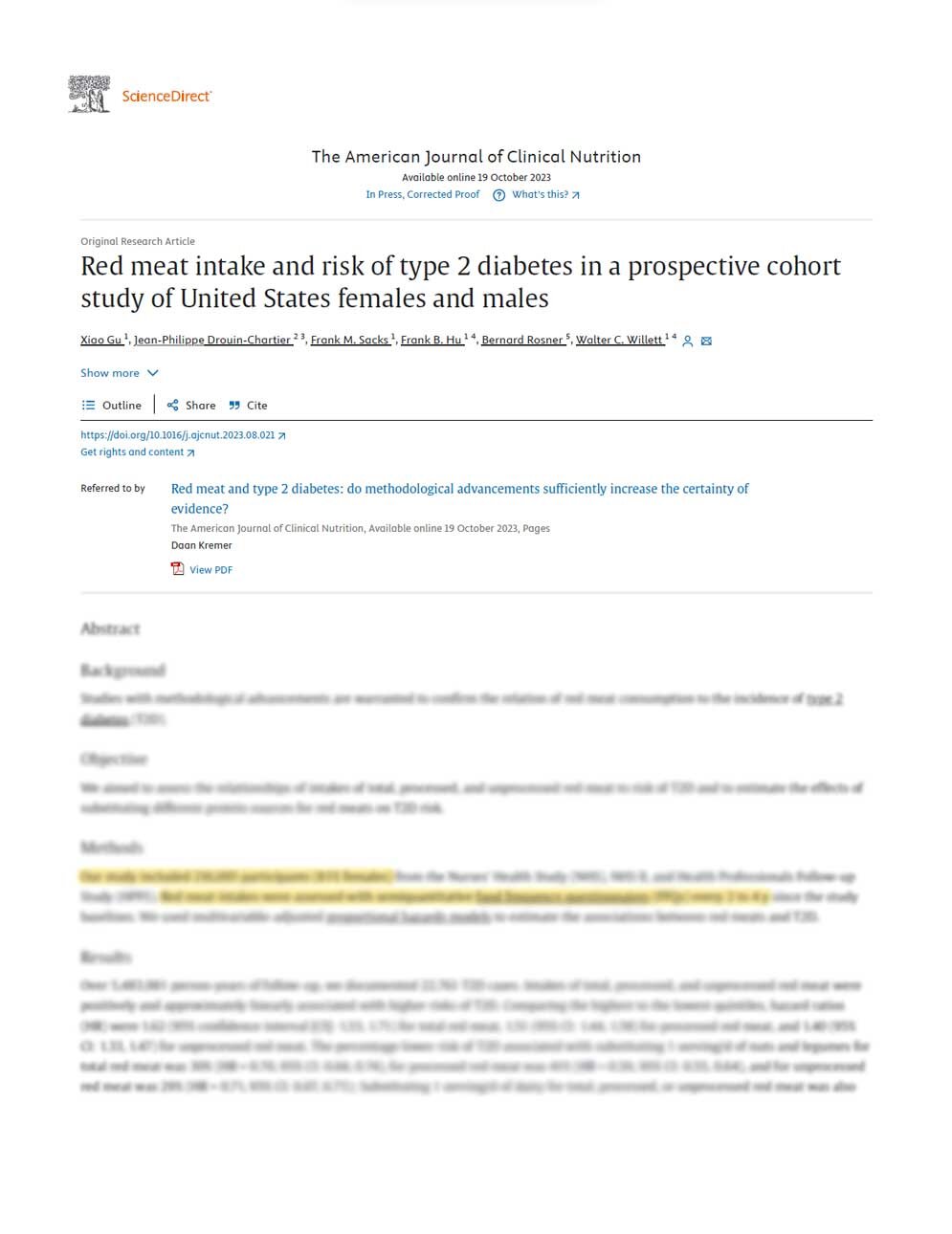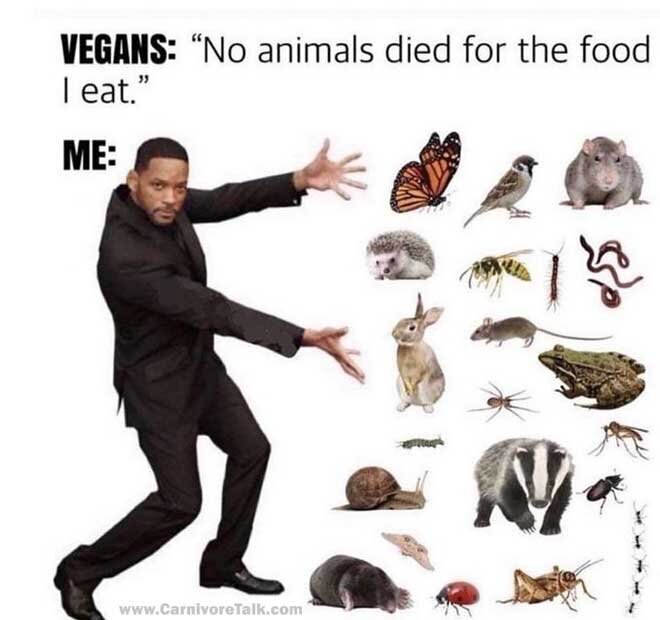-
Posts
1,328 -
Joined
-
Last visited
-
Days Won
94 -
Credits
5,440 [ Donate ]
Content Type
Profiles
Forums
Blogs
Downloads
Events
Store
Articles
Episodes
Transcripts
Gallery
Posts posted by Bob
-
-
-
6 hours ago, ol_hilly said:
Just got internet back again.... Just a few more months and fiber will be here hopefully.
What kind of internet service do you currently have?
I have Spectrum Cable (formerly Time Warner) and it's usually up all the time. It'll go out a few times a year if there's a bad storm or accident that effects the line, etc.
6 hours ago, ol_hilly said:Way to go Bob!
It was short lived. Yesterday I woke up 178.6 and today 178.4. Seeing 174.6 on the scale the other day was such a teaser, lol.

Yesterday I fasted until 2pm then had bacon and eggs, and then last night at 7:30 I had a New York Strip.
-
On 10/31/2023 at 11:57 PM, Bob said:
The study said that an “epidemic” of obesity and type 2 diabetes — both risk factors for dementia — may have contributed.
This isn't surprising, given that Alzheimer's disease is also known as Type 3 Diabetes.
If diet can prevent Type 2 Diabetes, then it stands to reason that diet can prevent Alzheimer's disease as well.
18 hours ago, Geezy said:But suggest that it might be prevented through proper nutrition and you would be vilified but they’ll make a pill for it so no one will have to change anything in their lifestyle.
True. But there are a surprising number of people who would rather take the pill so they can supposedly 'eat whatever they want'.

This is probably the majority of people too, which is why doctors default to prescribing yet another medication instead of trying to educate their patients with regards to diet.
-
Eggs are one of the world's most perfect foods and can be prepared in a diverse number of ways.
How do you like your eggs?
Vote in the poll above and let us know below.
-
Made burger patties tonight, topped with colby jack cheese. I fried them in tallow and then used the fat as dipping sauce. I also topped them with a dollop of avocado oil mayonnaise for the extra fat.
I had no idea changing my macros would have this effect, but the wieght is melting off again. I officially reached my initial goal weight of 175 today!
-
Dementia to double by 2040, driven by poor lifestyles
‘Wake-up call’ for social care as rates accelerateEleanor Hayward, Health CorrespondentThe TimesThe number of people with dementia in England and Wales is expected to almost double to 1.7 million by 2040. Rates in the population are rising much faster than previously thought, in a trend linked to widening inequalities, obesity and unhealthy living. The number of future cases will be 42 per cent higher than earlier forecasts had suggested, a study by University College London said, placing a “considerably larger” burden on NHS and social care.
Nearly 900,000 people are estimated to have dementia in England and Wales but if trends continue this could reach 1.2 million by 2030 and 1.7 million by 2040. The study, published in The Lancet Public Health, looked at data from people aged 50 to 80 living in England between 2002 and 2019.Between 2008 and 2016, dementia incidence increased by 25 per cent. The study said that an “epidemic” of obesity and type 2 diabetes — both risk factors for dementia — may have contributed. “Other possible explanations include worsening risk factors in socially disadvantaged groups and improved survival for patients with stroke,” it said.Four in ten cases of dementia could be prevented through improving lifestyle, including stopping smoking, losing weight and drinking less alcohol.The research updates a forecast from 2017 suggesting that there would be 1.2 million cases by 2040. This figure was calculated using older data that had shown a promising dip in rates of dementia.
Rates in the population are rising much faster than previously thought, in a trend linked to widening inequalities, obesity and unhealthy living. The number of future cases will be 42 per cent higher than earlier forecasts had suggested, a study by University College London said, placing a “considerably larger” burden on NHS and social care.
Nearly 900,000 people are estimated to have dementia in England and Wales but if trends continue this could reach 1.2 million by 2030 and 1.7 million by 2040. The study, published in The Lancet Public Health, looked at data from people aged 50 to 80 living in England between 2002 and 2019.Between 2008 and 2016, dementia incidence increased by 25 per cent. The study said that an “epidemic” of obesity and type 2 diabetes — both risk factors for dementia — may have contributed. “Other possible explanations include worsening risk factors in socially disadvantaged groups and improved survival for patients with stroke,” it said.Four in ten cases of dementia could be prevented through improving lifestyle, including stopping smoking, losing weight and drinking less alcohol.The research updates a forecast from 2017 suggesting that there would be 1.2 million cases by 2040. This figure was calculated using older data that had shown a promising dip in rates of dementia.‘Wake-up call’
Speaking of the new prediction of 1.7 million sufferers, Dr Yuntao Chen, the lead author, from the UCL Institute of Epidemiology and Health Care, said: “Not only will this have a devastating effect on the lives of those involved but it will also put a considerably larger burden on health and social care than current forecasts predict.”Professor Eric Brunner, also from UCL , said: “Our research has exposed that dementia is likely to be a more urgent policy problem than previously recognised — even if the current trend continues for just a few years.”Dementia is the biggest cause of death in England and Wales. The social care system has failed to keep up with demand, with several governments breaking promises to reform it, and charities said the figures must be a “wake-up call” to improve dementia care.James White, head of national influencing at the Alzheimer’s Society, said: “Dementia is the biggest health and social care issue of our time. Without action, the individual and economic devastation caused by dementia shows no sign of stopping.“We know that one in three people born in the UK today will develop this terminal condition in their lifetime. Pressure on our already struggling social care system is only going to increase.“Quality social care can make a huge difference to people’s lives, but we know that people with dementia — who are the biggest users of social care — are struggling with a care system that’s costly, difficult to access, and too often not tailored to their needs.”Hilary Evans, chief executive of Alzheimer’s Research UK, said: “This news highlights the enormous threat dementia poses, for both the public and for our already overstretched health and care workforce. As these figures show, unless urgent action is taken, dementia is set to place a huge and increasing burden on our healthcare system, and to blight millions of futures.“With new treatments for Alzheimer’s disease — the leading cause of dementia — finally on the horizon, we are now in the strongest position yet to bring an end to the devastation this condition causes. Now we must keep up this momentum if we are to free individuals and society from the fear, harm and heartbreak of dementia.’’Hope for treatments
Dementia is a general term for a set of symptoms caused by damage to nerve cells in the brain, including memory loss, confusion, loss of language and changes in behaviour. Alzheimer’s disease is the most common type, responsible for about two in three cases. There is no cure, but several new drugs can slow the progress of Alzheimer’s.Trials show that two, donanemab and lecanemab, can slow memory decline and they have been hailed as the “beginning of the end” for the disease. Although they have not yet been approved for NHS use, the drugs could be widely available by 2040. But this would require a radical improvement in NHS diagnostic services, as the medications work best when patients are diagnosed early.A Department of Health spokeswoman said: “We are providing £160 million a year by 2024-25 for dementia research to accelerate the development of the latest treatments and technology and our Major Conditions Strategy recognises not only the importance of tackling this disease but will set out the standards patients should expect at all stages of dementia care.” -
The last 2 evenings were just variations of what I made Friday. Sunday was ground beef with eggs and some blue cheese crumbles cooked in tallow. Monday was the same thing but I added bacon and cooked everything in the bacon grease instead of the tallow. Today was beef, turkey sausage, egg, and ghost pepper cheese cooked in tallow.
I've basically had some variation of the same thing for several dinners in a row now because 1) It's so darn tasty, and 2) I can't let the huge package of ground beef go bad.
It is getting repetitive though. I'll probably switch it up tomorrow.
-
-
Thanks for the tip.
I usually buy in bulk at Sam's Club
That online price works out to $3.53 per pound. I'm sure the in-club price is the same or close.
-
Just now, Matan1262 said:
Is it needed each day regardless of after I workout?
You may not need them daily when you don't work out. But it won't hurt anything. If you don't need a certain mineral, you will just urinate it out.
Most people get what they need from food. Others like me end up with issues, usually leg cramps at night. For me, it was magnesium in particular, so I supplement with magnesium.
You could do 1 pill on a normal day and on a workout day take the 2nd pill after the workout.
-
-
Welcome @Dury
 10 hours ago, Dury said:
10 hours ago, Dury said:Did my diet go to waste?
No, not if you reign in the urge to give into those cravings and stop eating off plan now.
Isn't it amazing how strong those cravings can be. My wife baked pumpkin bread and asked me to try it. I had one bite. In fact it wasn't even a bite, it was like a nibble, a half a bite. Suddenly I craved the whole loaf and desired all kinds of foods that I had trained myself to be immune to. I couldn't believe it. I resisted and it passed by in an hour or so.
And that's the probably reintroducing carbohydrates into your system. You wake up those cravings and they may stick around for a day or two but if you go right back to being a faithful carnivore you can get the mastery over them, they will subside, and you probably wouldn't have done much damage.
If you fall, you get back up again right that minue. Not tomorrow, not Monday, not next week.

-
15 hours ago, Matan1262 said:
https://www.iherb.com/pal/referral/KBU1252/pdp?productId=112605&rcode=KBU1252&utm_medium=appshare
This is another one I found
This one looks great! The Codeage, Keto Electrolytes, Ketogenic Formula, 180 Capsules.
Take 2 capsules daily, with or without food.

-
Red meat intake and risk of type 2 diabetes - Harvard
This bogus study is discussed here:
https://carnivoretalk.com/topic/74-the-red-meat-diabetes-harvard-study/There are so many holes and errors with this study.
-
Submitter
-
Submitted10/28/2023
-
Category
-
-
Red meat may not cause harmful inflammation after all
OCTOBER 27, 2023
by John Anderer
HOUSTON — A little inflammation is usually a positive sign the immune system is at work, but chronic inflammation can take a heavy toll on the body’s cells, tissues, and organs. Doctors have long advised patients to avoid eating too much red meat as a means of avoiding chronic inflammation, but have burgers and steaks gotten a bad rap? Researchers from Baylor College of Medicine say red meat may not be so bad after all.
“The role of diet, including red meat, on inflammation and disease risk has not been adequately studied, which can lead to public health recommendations that are not based on strong evidence,” says Dr. Alexis Wood, associate professor of pediatrics – nutrition at the USDA/ARS Children’s Nutrition Research Center at Baylor College of Medicine and Texas Children’s Hospital, in a university release. “Our team sought to take a closer look by using metabolite data in the blood, which can provide a more direct link between diet and health.”
To study this topic, the research team analyzed cross-sectional data encompassing roughly 4,000 older adults participating in the Multi-Ethnic Study of Atherosclerosis (MESA). For reference, cross-sectional data is quite useful as a source of evidence on how diet affects health, as it makes use of data observed with free-living people, without any attempts to influence their usual lifestyle.
In this way, study authors believe it may be easier to take results from such earlier studies and apply them to non-research settings. Meanwhile, besides just assessing participants’ self-reported food intake and several biomarkers, the research team also gauged a large array of dietary intake metabolites in their blood. Plasma metabolites are useful in terms of assessing the effects of dietary intake as food is processed, digested, and ultimately absorbed into the body.
After adjusting for body mass index (BMI), researchers concluded the ingestion of unprocessed and processed red meat (beef, pork, or lamb) was not directly associated with any markers of inflammation. Researchers theorize this suggests body weight, not red meat, may be the real driving force behind increased systemic inflammation. Importantly, no link was seen connecting red meat intake and C-reactive protein (CRP), considered the major inflammatory risk marker of chronic disease.
“Our analysis adds to the growing body of evidence that indicates the importance of measuring plasma markers, such as metabolites, to track diet and disease risk associations, versus relying on self-reported dietary intake alone,” Dr. Wood explains. “Our analysis does not support previous observational research associations linking red meat intake and inflammation.”
Since observational studies, by their very nature, cannot establish cause and effect, researchers recommend that randomized controlled trials (RCTs) be conducted in the future to confirm these findings. Such trials should entail participants being randomly assigned to either consume a dietary factor of interest or not eat it. Several earlier RCTs have already demonstrated that lean unprocessed beef can be enjoyed as part of certain heart-healthy dietary patterns.
“We have reached a stage where more studies are needed before we can make recommendations to limit red meat consumption for reducing inflammation if we want to base dietary recommendations on the most up-to-date evidence,” Dr. Wood concludes. “Red meat is popular, accessible and palatable – and its place in our diet has deep cultural roots. Given this, recommendations about reducing consumption should be supported by strong scientific evidence, which doesn’t yet exist.”
[hr]
Article Source: https://studyfinds.org/red-meat-inflammation/
-
30 minutes ago, Geezy said:
Bob you had me concerned at “Wendy’s” lol.
You can still do carnivore when in a pinch, lol.
The beef patties are 100% USDA meats, and bacon is bacon. American cheese has "less than 2% of" unpronounceable ingredients, but it works overall. It's actually cheaper to get these as sides than it is to ask for a burger with no bun.
I much prefer to cook at home and am in no way endorsing the Wendy's Diet, lol

-
Since I've been carnivore I have been a bit of a boring chef, which is too bad because I can cook and am otherwise creative. But with meat, it's basically heat and eat.
I do like to combine things together. Like beef, bacon, sausage, egg, and butter. Mix it all up.
I still do seasonings from time to time, which some overzealous carnivores will be critical of. That's why I say I am "97% Carnivore".
You should check out the "What's fer supper!" topic for some ideas.
-
Geoff is correct. Ruminant animal meat is as pure as it gets, as their multi-chamber stomachs break down all the toxins in the plants they may eat. Grass fed/finished has a little more in the way of vitamins and minerals, but the vitamin and mineral content in grain fed is just fine.
-
7 hours ago, Matan1262 said:
I work out every day, do I need to consume electrolytes? if so how often and how much and which company?
Since you are working out, you probably should supplement with some electrolytes. LMNT is very tasty. One or two of those a day will probably do you well. Redmond's (makers of Real Salt) make an electrolyte drink mix called ReLyte. Keto Chow has electrolytes and a product called Daily Minerals (which tastes god awful and you need to dilute it with something).
I have to salt to taste and supplement with magnesium or I get terrible leg cramps.
7 hours ago, Matan1262 said:Should I eat organ meat like liver and fish like salmon? if so, how often?
Liver is a superfood. It's nature's multivitamin. I would just incorporate it whenever you want. Some people eat it once or twice a month. Others make sure to eat 2 ounces a week. Some people dice it up raw and freeze it and then pop it like a pill with some water because they don't want to taste it. You just don't want to eat gobs and gobs of liver in one sitting as too much can give you vitamin poisoning.
Salmon is a nice fatty fish and is especially good for omega-3's. You don't have to go overboard though. Once a week would be fine.
Fatty red ruminant meat is still the overall best thing for us.
-
-
So I ended my weekly weekend 24 hour fast with.... Wendy's, lol. The wife and I hiked a trail, and then were going to meet up with some friends at the dog park. I was going to keep fasting but she was really hungry and asked me about stopping to pick something up. I didn't want to deal with the smell of food in the car and not eat, so I got 4 large beef patties, 4 slices of cheese, and 4 sides of bacon.
This will be my only meal for today.
-
10 hours ago, Matan1262 said:
For how long can I keep ground beef in the refrigerator?
Raw? Just a matter of a few days. Here in the USA the package will have a "Sell by" or date. You can get away with a day or two after that but if you aren't going to use it then you better bag it up and freeze it.
Cooked beef on the other hand might last the whole work week if kept in a container with a nice tight lid.
-
2 hours ago, Geezy said:
Not to mention that more biological life is killed to produce her food than the death of the animals we eat.

-
No real environmental concerns. There's some propaganda that eating beef is bad for climate change, but just the sound of that should raise an eyebrow. It doesn't even begin to make sense. This stuff is usually vegan propaganda.
The question of ethics is also rooted in vegan propaganda, but I can actually appreciate this a little more. I do respect life and believe that animals should be well-treated and respected.
I took a man and his wife out to lunch one time. They were visiting from out of town. I took note that the wife had ordered a vegan/vegetarian dish and so I asked if she was vegetarian of if she just like that dish. She said she was a vegetarian. I asked her how long and why she was doing it for health reasons. She replied "I just don't feel like something has to die in order for me to eat".
And that was a fine answer. I can respect that. I could have elaborated on the benefits of carnivore or talked about how plants are living things too and they die so we can eat, but that wouldn't have been respectful, and in fact might have even been rude. She's happy with her choices and so I am happy for her. Whenever someone asks about the ethics of eating this way, I always think of what she said.
But I believe an animals should have a happy and fulfilling life, and when their times up, it should be over and done with quickly.










What's fer supper!
in Everyday Chit Chat & Off-topic Discussion
Posted
Fasted for 24 hours and broke it with this approximately 1500 calorie dish. Shrimp, cheese, and bacon and some ground beef and ghost pepper cheese.
I had to do leaves today. Took me from noon to 4pm, and I have a huge yard with a lot of leaves. I'm easily in an energy deficit today